- Home
- Frank Herbert
The White Plague Page 2
The White Plague Read online
Page 2
Herity did not pause to glance out at his work; the sound told it all. He tucked the transmitter into a small and worn military green pack, stuffed an old yellow sweater onto it, strapped the cover and slung the pack over his shoulder. He left the building by the back way, elated and satisfied. Barney and his group would get this message!
John O’Neill had looked up from his wristwatch just in time to see the orange blast envelop Mary. He was saved from the window’s shattered glass by the heavy curtains, which deflected all but one of the shards away from him. One small section of glass creased his scalp. The shock wave staggered him, driving him backward against a desk. He fell sideways, momentarily unconscious but getting quickly to his knees as the bank manager rushed into the room, shouting:
“Good God! What was that?”
John stumbled to his feet, rejecting the question and the answer that rumbled through his head like an aftershock of the blast. He brushed past the bank manager and out the door. His mind remained in shock but his body found its way down the stairs. He shouldered a woman aside at the foot of the stairs and lurched out onto the street where he allowed himself to be carried along by the crowd rushing toward the area of the blast. There was a smell of burnt iron in the air and the sound of cries and screams.
Within only a few seconds John was part of a crush being held back by police and uninjured civilians pressed into service to keep the area around the explosion clear. John elbowed and clawed his way forward.
“My wife!” he shouted. “I saw her. She was there. My wife and our children!”
A policeman pinned his arms and swung him around, blocking John’s view of the tangled fabric and bloody flesh strewn across the street.
The groans of the injured, the cries for help and the shouts of horror drove John into insensate rage. Mary needs me! He struggled against the policeman.
“Mary! She was right in front of…”
“The ambulances are coming, sir! There’s help at hand. You must be still. You cannot go through now.”
A woman off to John’s left said: “Let me through. I’m a nurse.”
This, more than anything else, stopped John’s struggles against the policeman.
People were helping. There was a nurse.
“It’ll be cleared up in a bit, sir,” the policeman said. His voice was maddeningly calm. “That’s a bad cut on your head. I’ll just help you across to where the ambulances are coming.”
John allowed himself to be led through a lane in the crowd, seeing the curious stares, hearing the voices on his right ooing and the calling upon God to “look over there” – the awed voices telling John about things he did not want to see. He knew, though. And there were glimpses past the policeman who helped him to a cleared place against a building across from the green.
“There now, sir,” the policeman said. “You’ll be taken care of here.” Then to someone else: “I think he was hit by a flying bit; the bleeding seems to’ve stopped.”
John stood with his back against a scarred brick wall from which the dust of the explosion still sifted. There was broken glass underfoot. Through an opening in the crowd to his right he could see part of the bloody mess at the corner, the people moving and bending over broken flesh. He thought he recognized Mary’s coat behind a kneeling priest. Somewhere within him there existed an understanding of that scene. His mind remained frozen, though, frigidly locked into limited thought. If he allowed himself to think freely, then events would flow – time would continue… a time without Mary and the children. It was as though a tiny jewel of awareness held itself intact within him, understanding, knowing… but nothing else could be allowed to move.
A hand touched his arm.
It was electric. A scream erupted from him – agonized, echoing down the street, bringing people whirling around to stare at him. A photographer’s flash temporarily blinded him, shutting off the scream, but he could still hear it within his head. It was more than a primal scream. This came from deeper, from some place he had not suspected and against which he had no protection. Two white-coated ambulance attendants grabbed him. He felt his coat pulled down, shirt ripped. There came the prick of a needle in his arm. They hustled him into an ambulance as an enveloping drowsiness overwhelmed his mind, sweeping away his memory.
For a long time afterward, memory would not reproduce those shocked minutes. He could recall the small car, the brown-sweatered elbow on the windowsill, but nothing afterward. He knew he had seen what he had seen: the explosion, the death. Intellectual awareness argued the facts. I was standing at that window, I must have seen the blast. But the particulars lay behind a screen that he could not penetrate. It lay frozen within him, demanding action lest the frozen thing thaw and obliterate him.
Despair and grief suit the Celtic mind more than do joy and victory. Every Celtic joy has its mixture of grief. Every victory leads to despair.
– Fintan Craig Doheny
STEPHEN BROWDER read about the Grafton Street bombing while sitting on the grass of the quad at the medical school of University College, Cork. As a third-year student Browder had learned enough about school routine to provide himself with a long lunch hour and a chance to crack the books and catch his breath between classes. He had chosen this luncheon spot, however, because some of the student nurses shared it and Kathleen O’Gara frequently was among that lunching troupe.
It was a warm day and this had brought many others into the quad, all of them preferring the green to the gothic stone monstrosity of the school, which often seemed to partake more of the old jail that once had occupied this spot than of a modern medical facility. The Cork Examiner in his hands was only a prop but he had been caught by the picture of a screaming man – “American Tourist Loses Family” – and he read the story, shaking his head now and then at the horror of it.
Browder’s attentions to Kathleen O’Gara had not gone without notice among the student nurses. They teased her about it now.
“There he is, Katie. I’ll loan you a handkerchief to drop in front of him.”
Kate blushed, but could not keep herself from looking across the green at Browder. He was a skinny, gawkish young man with sandy hair and widely set blue eyes. His whole bearing gave promise of his becoming one of those stoop-shouldered general practitioners who inspire so much faith among their patients by their towering benignity. There was a persistent thoughtfulness about him that she liked. The shyness was sure to become learned diffidence and a down-the-nose austerity that would go well with his finely chiseled features.
Browder looked up from his newspaper and met Kate’s eyes. He looked away quickly. He had been trying for two weeks to work up his courage, seeking a way to ask her to go out with him. He berated himself now for not smiling back at her.
He could not really define why she attracted him. She had a youthful figure, a bit on the sturdy side, but comely. Her skin carried those fine surface veins that gave a rosy hue to the complexion. Her hair now – that was a shining red-brown, part of the Viking legacy, and her dark brown eyes were set rather deeply under a wide brow. He knew she was recognized as a good worker, bright and cheerful, and he had heard another nursing student say about her: “She’s no beauty but good enough to get a husband.”
She is beautiful in her own way, he thought.
Again, he glanced at her and their eyes met. She smiled and he forced himself to smile before breaking the contact. His heart was beating strongly and he bent over the newspaper for distraction. The picture of the screaming man seemed to stare out at him, chilling him. The poor fellow’s entire family gone in that blast – the wife and two children. For a moment, Browder had a fantasy picture of himself married to Kate O’Gara – children, of course. And them gone like this. All of them. Without any warning. Everything that had gone into Stephen Browder’s choice of profession felt outraged by that bombing.
Was anything worth it?
Even the reuniting of all Ireland, which he solemnly prayed for on holy days – could that jus
tify this act?
A splinter group of the IRA, the Provos, was claiming credit, according to the Examiner’s story. Browder had friends in the IRA. One of his fellow students made explosives for them. The sympathies of the University College student body were not hard to discover. They wanted the Brits out.
Damn the Brits!
Browder felt torn by his Republican sympathies and his shock at what had been done to those people in Dublin. Thirty-one dead; seventy-six maimed and injured. And all because some people in the dail were reportedly wavering, talking about an “accommodation.” There could be no accommodation with the Brits. Never!
But would the bombs ever solve anything?
A shadow fell on his newspaper. Browder looked up to see Kate O’Gara standing there looking down at him. Hastily, he scrambled to his feet, spilling an anatomy textbook from his lap, losing part of his newspaper. He looked down at her, suddenly conscious that he was more than a head taller.
“You’re Stephen Browder, aren’t you?” she asked.
“Yes. Yes, I am.”
She had a lovely soft voice, he thought. And he had an abrupt insight into what a powerful asset such a voice would be to a nurse. It was a calming voice. It gave him courage.
“And you’re Kate O’Gara,” he managed.
She nodded. “I saw you reading about that bombing, the one in Dublin. What a terrible thing.”
“‘Tis that,” he agreed. Then, before he lost courage: “Must you go back to classes now?”
“I’ve only these few minutes.”
“And what time do you finish?” He knew he was blushing as he asked.
She lowered her gaze. What long lashes she has, he thought. They lay like feathers on her cheeks.
“I would like to see you,” he said. And that was God’s own truth. He couldn’t take his eyes off her.
“I’m expected home at half five,” she said, looking up at him. “We could have a tea perhaps on the way.”
“Shall we meet here after classes then?” he asked.
“Yes.” She smiled and hurried off to join her friends.
One of the other student nurses, having watched the two of them, whispered to a companion: “God! I’m glad that’s finally done.”
Holy Ireland was just a name, a myth, a dream that had no connection with any reality. It was our tradition, a part of our reputation, at one with the myth that we have only the honor gained from glorious battle.
– Father Michael Flannery
JOHN ROE O’NEILL awakened to see a priest standing beside him and a doctor standing at the foot of his bed. He could feel the bed under him and smelled antiseptics. This would be a hospital, then. The doctor was a tall, older man with gray at the temples. He wore a green street jacket, stethoscope in the pocket.
Why am I here? John wondered.
It was a hospital ward, he saw: other beds with figures in them. It was a blankly impersonal room, a place designed with malice to negate the personality of the occupant – as though someone had worked consciously and with a great deal of hate to create a place that would reflect no human warmth. If this room uttered any statement it was: “You won’t live long here.”
John tried to swallow. His throat hurt. He had been dreaming about Mary. She had been swimming away from him in the dream, a great blue expanse of water all around and no sound in her movements even when he saw the water splashing.
“I’m going for the children,” she said. He heard that, but still no sound of swimming.
His dream self had thought: Of course. She must go for the children. Kevin and Mairead will need her.
In the dream, he could sense Mary’s mind as though it were his own. Her mind conveyed an oddly crystalline quality like the aftermath of fever. “I can’t feel my body,” she said. “Poor John. I love you.”
Then he was awake, his eyes burning, and the priest and the doctor there. It was a green place with a carbolic smell that separated it from the memories of American hospitals. There were bonneted sisters bustling about and, when one saw him awake, she hurried away. The shade was up on a single tall window to the left of the doctor: darkness outside. It was night, then. Light came from unshaded bulbs dangling on long wires from a high ceiling. The doctor was examining a clipboard that was attached by a string and hook to the foot of the bed.
“He’s awake,” the priest said.
The doctor let the clipboard fall back onto its string and looked down the length of the bed at John. “Mr. O’Neill, you’ll be all right. Fit as a fiddle by morning.” He turned and walked away.
The priest leaned toward John. “Are you Catholic, sir?”
“Catholic?” It seemed an insane question. “I’m… I’m… St. Rose’s parish…” Now, why should he tell the priest the name of his parish?
The priest put a gentling hand on John’s shoulder. “There, there. I quite understand.”
John closed his eyes. He heard a scraping of a chair on the floor and, when he opened his eyes, saw that the priest had sat down, bringing his face close to John’s.
“I’m Father Devon,” the priest said. “We know who you are, Mr. O’Neill, from your things. Would you be related to the O’Neills of Coolaney, by the way?”
“What?” John tried to raise himself but his head started spinning. “I… no. I don’t know.”
“It would be good to have family around you at such a time. Your wife’s body has been identified – her purse. I’ll not go into the particulars.”
What particulars? John wondered. He recalled a bloody mound of tweed but could not place it in time or space.
“It’s very bad news to be giving you, Mr. O’Neill,” Father Devon said.
“Our children,” John gasped, grasping at hope. “The twins were with her.”
“Ahhhhh,” Father Devon said. “Well now, as to that, I don’t know. It’s been quite a few hours and all the nasty work done but… Were the wains with her when…”
“She was holding their hands.”
“Then I would not hold out much hope. What a terrible thing! Shall we pray for the souls of your loved ones?”
“Pray?” John turned his head away, choking. He heard the chair scrape, footsteps approaching. A woman’s voice said, “Father…” then something that John could not make out. The priest responded in a low, unintelligible murmur. Then the woman’s voice, clearly: “Mother of Mercy! His wife and the two little ones both! Ahhh, the poor man.”
John turned back in time to see a nursing sister departing, her back stiff. The priest was standing beside him.
“Were your wife and children Catholic as well?” Father Devon asked.
John shook his head. He felt feverish and dizzy. Why these questions?
“Mixed marriage, eh?” Father Devon, having jumped to a wrong conclusion, sounded accusatory. “Well, my heart goes out to you all the same. The remains have been taken to the morgue. We can decide in the mornin’ what’s to be done with the remains.”
Remains? John thought. He’s talking about Mary and the twins.
The doctor returned and moved down the side of the bed opposite the priest. John turned toward the doctor and saw that the nursing sister had reappeared there beside him as though by magic. She wore a white apron over a green dress and her hair was contained by a tightly hooded cap. Her face was thin and commanding. She held a hypodermic in her right hand.
“Something to help you sleep,” the doctor said.
Father Devon spoke: “The Garda will be in to talk to you in the morning. Send for me when they’ve gone.”
“We’ll have the lights down now,” the doctor said.
“And high time it is.” The nursing sister had a demanding voice with considerable tartness in it, a protective voice. He held to that thought as sleep enveloped him.
Morning was the sound of rattling bedpans on a cart. John awoke to see a uniformed police officer standing where the priest had been.
“They said you’d be awakening soon,” the officer said. He had
a mellow tenor, a square face with prominent veins. His hat was held stiffly under his left arm. He pulled a small notebook from a side pocket and prepared to write. “I’ll not trouble y’ overmuch, Mr. O’Neill. But I’m sure y’ can appreciate there’re things we must do.”
“What do you want?” John’s voice remained a croak. His head still felt fuzzy.
“Would you be telling me what you were doing in the Republic of Ireland, sir?”
John stared up at the officer. Doing? The question wandered aimlessly in his awareness for a time. His mind felt thick and clogged. He had to force a response.
“I was… foundation grant… doing research.”
“And the nature of this research?”
“Gen… genetics.”
The officer wrote in his notebook, then: “And is that your occupation, researcher?”
“I… I teach… molecular biology, biochemistry… and…” He took a deep, trembling breath. “School of Pharmacy, as well.”
“And that would be in this Highland Park in the state of Minnesota? We’ve seen your papers, y’ understand?”
“Near… nearby.”
“You’ve family here in the Republic of Ireland?”
“We… were going to look.”
“I see.” The officer wrote this in his pad.
John labored against a tightness in his chest. He found his voice presently: “Who… who did it?”
“Sir?”
“The bomb?”
The officer’s face grew stony. “They’re saying it was the Proves taking the credit.”
A chill shot through John. The hard pillow under his neck felt damp and cold. Credit? The murderers were claiming credit?

 Direct Descent
Direct Descent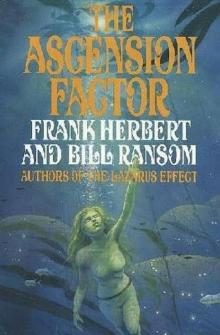 The Ascension Factor
The Ascension Factor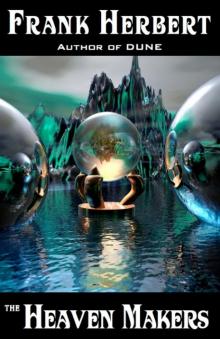 The Heaven Makers
The Heaven Makers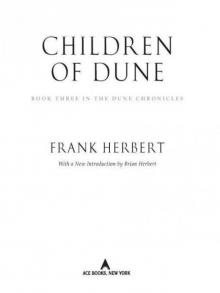 Children of Dune
Children of Dune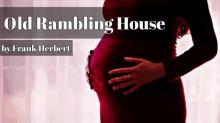 Old Rambling House
Old Rambling House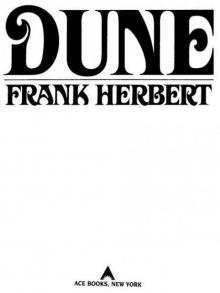 Dune
Dune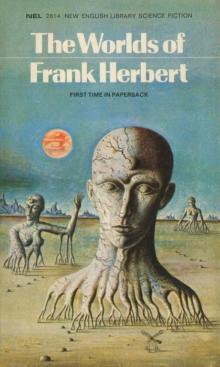 The Worlds of Frank Herbert
The Worlds of Frank Herbert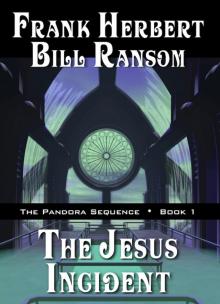 The Jesus Incident
The Jesus Incident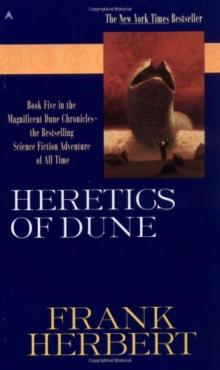 Heretics of Dune
Heretics of Dune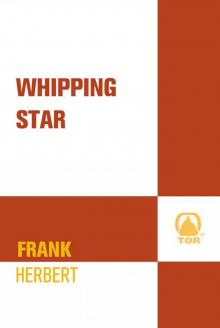 Whipping Star
Whipping Star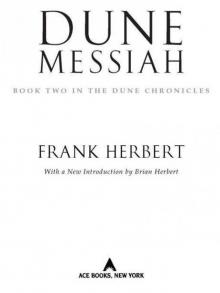 Dune Messiah
Dune Messiah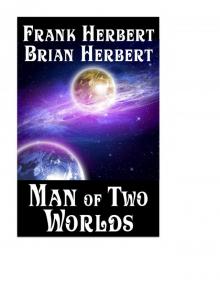 Man of Two Worlds
Man of Two Worlds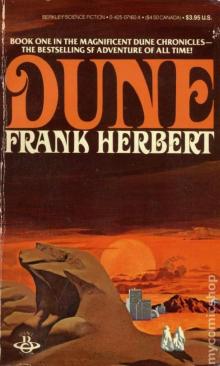 The Book of Frank Herbert
The Book of Frank Herbert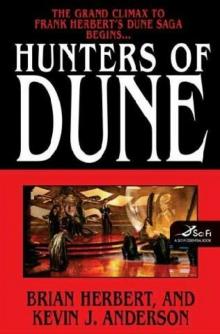 Hunters Of Dune
Hunters Of Dune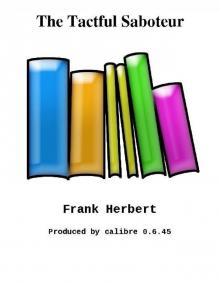 The Tactful Saboteur
The Tactful Saboteur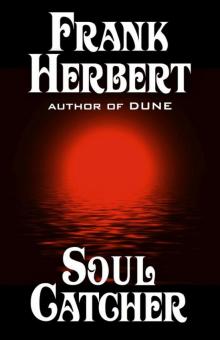 Soul Catcher
Soul Catcher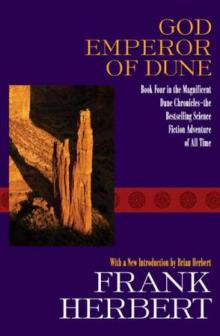 God Emperor of Dune
God Emperor of Dune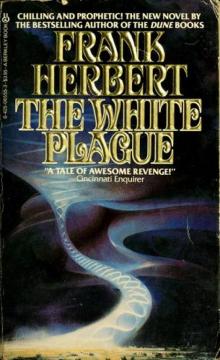 The White Plague
The White Plague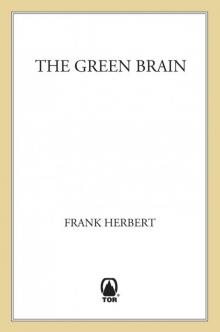 The Green Brain
The Green Brain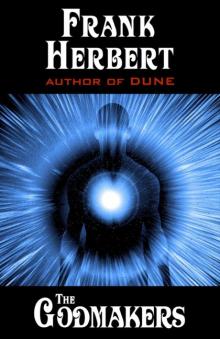 The Godmakers
The Godmakers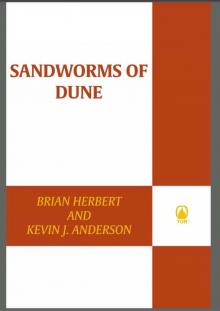 Sandworms of Dune
Sandworms of Dune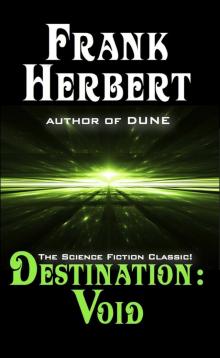 Destination Void
Destination Void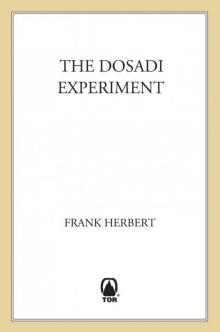 The Dosadi Experiment
The Dosadi Experiment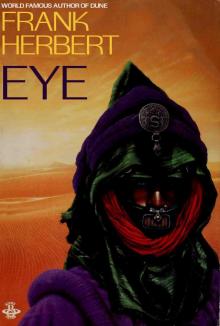 Eye
Eye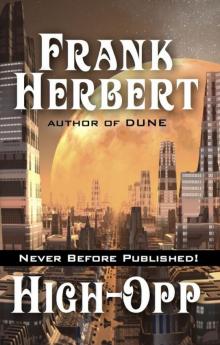 High-Opp
High-Opp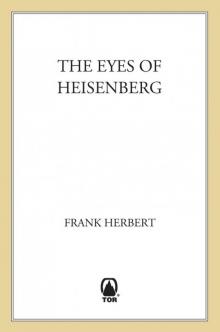 The Eyes of Heisenberg
The Eyes of Heisenberg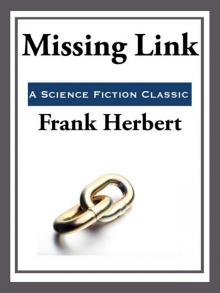 Missing Link
Missing Link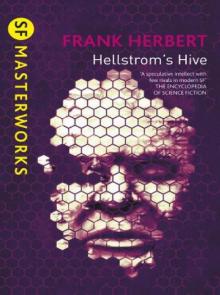 Hellstrom's Hive
Hellstrom's Hive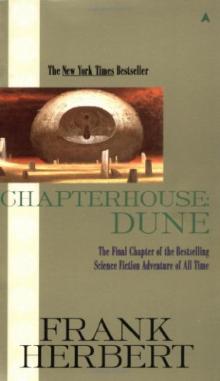 Chapterhouse: Dune
Chapterhouse: Dune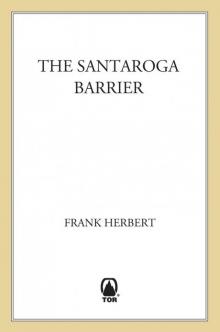 The Santaroga Barrier
The Santaroga Barrier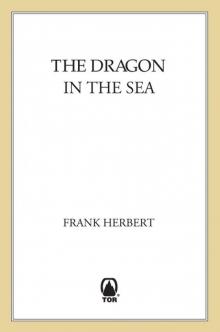 The Dragon in the Sea
The Dragon in the Sea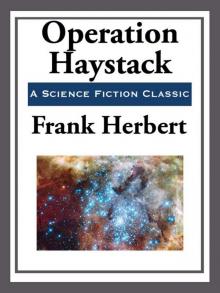 Operation Haystack
Operation Haystack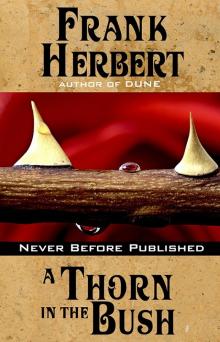 A Thorn in the Bush
A Thorn in the Bush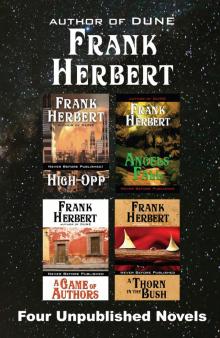 Four Unpublished Novels
Four Unpublished Novels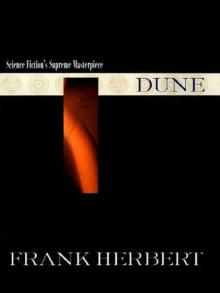 Dune dc-1
Dune dc-1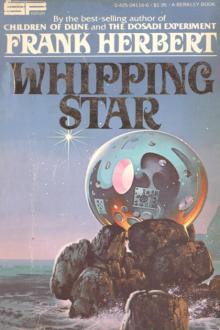 Jorj X. McKie 1 - Whipping Star
Jorj X. McKie 1 - Whipping Star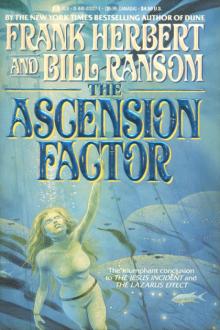 DV 4 - The Ascension Factor
DV 4 - The Ascension Factor Frank Herbert - Dune Book 4 - God Emperor Of Dune
Frank Herbert - Dune Book 4 - God Emperor Of Dune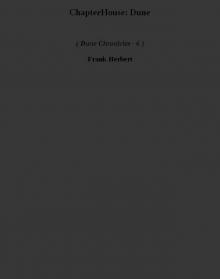 ChapterHouse: Dune dc-6
ChapterHouse: Dune dc-6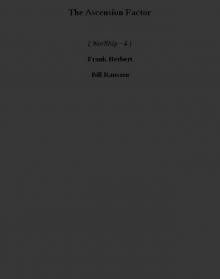 The Ascension Factor w-4
The Ascension Factor w-4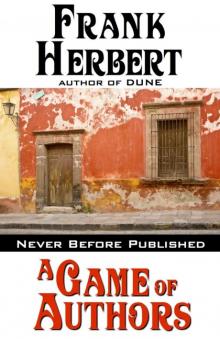 A Game of Authors
A Game of Authors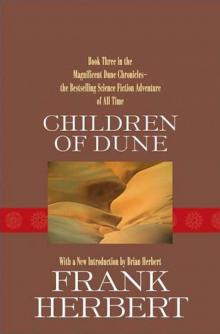 Children of Dune dc-3
Children of Dune dc-3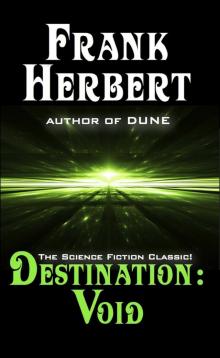 Destination: Void: Prequel to the Pandora Sequence
Destination: Void: Prequel to the Pandora Sequence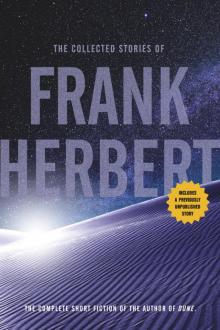 The Collected Stories of Frank Herbert
The Collected Stories of Frank Herbert Dune Messiah dc-2
Dune Messiah dc-2 Frank Herbert - Dune Book 5 - Heretics of Dune
Frank Herbert - Dune Book 5 - Heretics of Dune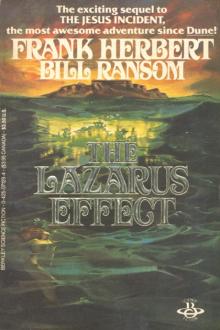 DV 3 - The Lazarus Effect
DV 3 - The Lazarus Effect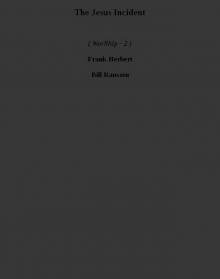 The Jesus Incident w-2
The Jesus Incident w-2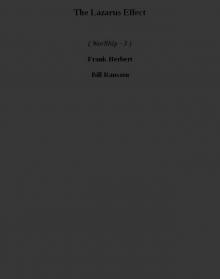 The Lazarus Effect w-3
The Lazarus Effect w-3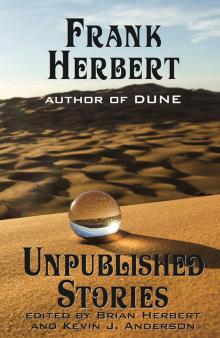 Frank Herbert
Frank Herbert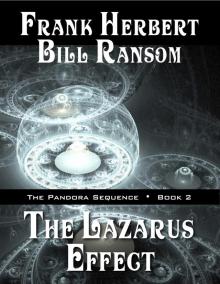 The Ascension Factor: Pandora Sequence
The Ascension Factor: Pandora Sequence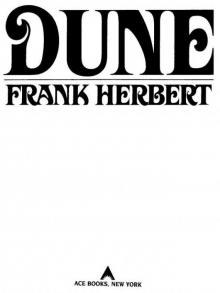 Dune (40th Anniversary Edition)
Dune (40th Anniversary Edition)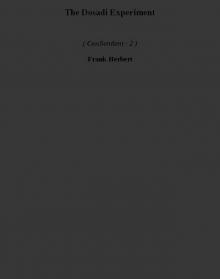 The Dosadi Experiment c-2
The Dosadi Experiment c-2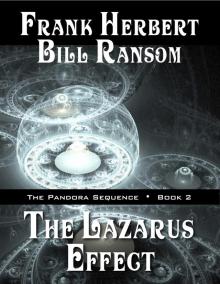 The Lazarus Effect
The Lazarus Effect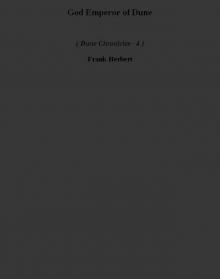 God Emperor of Dune dc-4
God Emperor of Dune dc-4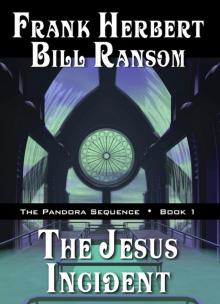 The Pandora Sequence: The Jesus Incident, the Lazarus Effect, the Ascension Factor
The Pandora Sequence: The Jesus Incident, the Lazarus Effect, the Ascension Factor The Green Brain (v4.0)
The Green Brain (v4.0) The Heaven Makers (v4.0)
The Heaven Makers (v4.0)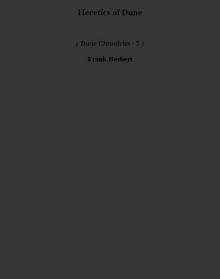 Heretics of Dune dc-5
Heretics of Dune dc-5